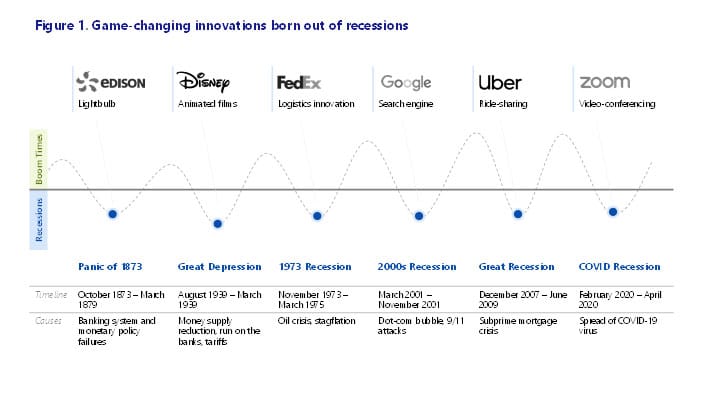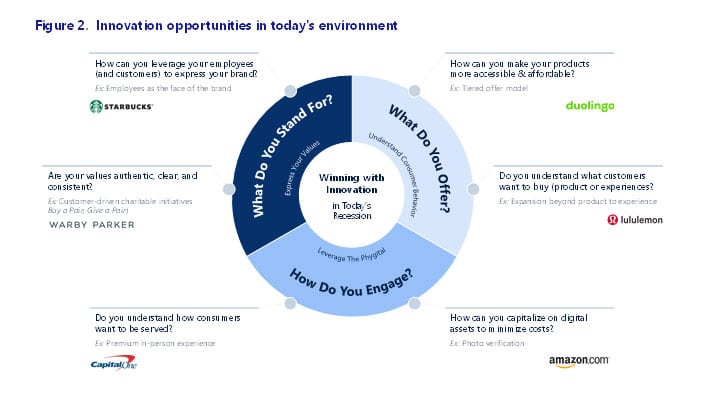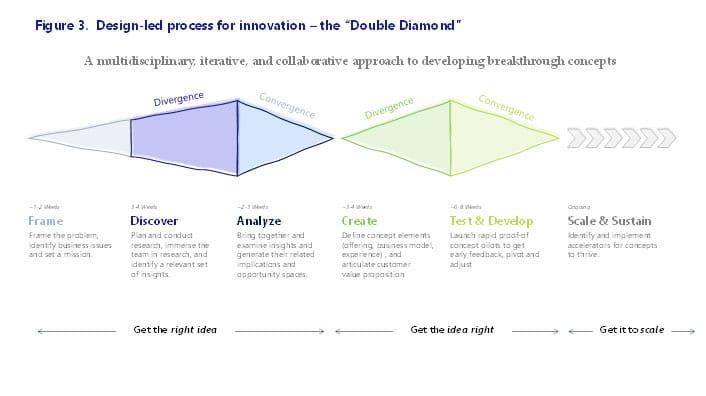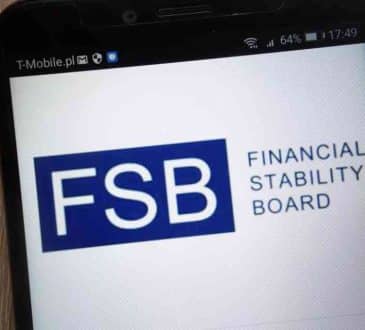3 ways to innovate despite any pending recession

Innovation, indeed, thrives in recession: In July, government data confirmed that the American economy shrank for the second quarter in a row. Although this didn’t technically confirm a recession, it has raised worries within the business community. A looming recession may stoke anxiety, but business leaders and entrepreneurs should welcome the opportunity to drive their business forward by investing in innovation.
That may sound counterintuitive. After all, recessions are infamous for forcing companies to slash budgets and lay off employees. But history has shown that economic downturns are the ripest periods of innovative activity. From Snow White and the Seven Dwarfs (the world’s first feature-length animated film which was made amid the Great Depression) to companies like Instacart and Grubhub that innovated and thrived amid the COVID-19 economic downturn, recession can trigger new habits that persist beyond it and also fuel innovation.
This begs the question: What trends should companies be watching today?
Lay of the land as we approach 2023
First, on the macroeconomic side, every consumer is struggling with inflation, and this has a profound impact on where and how consumers spend. Eighty percent of Americans said they will rethink or reduce spending soon. Consumers expect high inflation to persist, meaning prolonged lower spending. Additionally, during the pandemic customers bought many substantial consumer goods – such as new televisions or bread makers – and won’t need or want to buy new goods anytime soon. In this context, it might seem more challenging for companies to maintain their business, let alone grow. But a few smart innovations can help turn this dilemma into an opportunity.
Customers are more concerned with price than brand loyalty, allowing companies to rethink how they are configured to deliver the same products at lower costs, and in a more agile way.
The company Flexe, the “Airbnb of warehouses” rents out 550 warehouses, worth 25M sq-ft, to shippers, helping cut costs, and has been a key partner to digital native, direct-to-consumer companies like Casper or Hims.
But to fully grasp how consumers are responding to this inflationary pressure, it needs to be contextualized as occurring in the wake of a pandemic. People have had years of meaningful experiences taken away from them and are engaging in a practice that economists have dubbed ‘revenge spending’. In August of 2021, the average American was spending $765 more than they had the year before. Of course, this was before a surge in inflation, but companies have ample opportunity to take advantage of this desire in smaller ways. Bed Bath and Beyond has continued to report that consumers are coming to its stores to indulge in little luxuries. During difficult times, consumers will tighten their belts when shopping for essentials and will stop buying large products but will still buy small indulgences as a reprieve from the difficult times.
Post-pandemic life bleeds directly into a second trend, the phygital future. Pandemic restrictions forced society to live, work, and play remotely whenever possible. Although this was an unfamiliar situation, the taming of the virus did not result in a total return to normal. NBA attendance is at 95.1% of its pre-pandemic height, OpenTable reservations are at 89.6%, and TSA Check-ins are at 87.6%; office occupancy rates, however, are only at 44.2%. These numbers paint a clear picture: people want to pair the joys of the physical world with the convenience of the digital, particularly in the workplace. Companies need to be thoughtful about how they can provide convenience in their digital offerings and how can they provide excitement and novelty in person.
In addition to a shift in living, recent years have seen a shift in people’s values. For one thing, consumers have become far more environmentally conscious. Between 2016 and 2021, there has been a worldwide 71% rise in consumers searching for sustainable goods and a 65% uptick in posts about biodiversity loss across the same period. In a 2019 survey, half of the respondents say they have switched the products they buy because they did not match their values, with the number one value cited being a lack of sustainability. Beyond social responsibility concerns, consumers are most interested in engaging with companies that reflect their identities. 68% of millennial and Gen-Z shoppers say that brand matters to their identity and how they think of themselves.
Understand Consumer Behavior: What Do You Offer?
Creating affordable, entry-level versions of your offerings can be a valuable – if not necessary – step to take in a recession. Once people feel comfortable with your product and better economic conditions allow them to pay more, you’ll reap the rewards. For instance, Duolingo offers a free language learning service as well as an ad-free premium version.
Does your company understand what customers want to buy (i.e., products or experiences)? This is especially relevant in figuring out if your customers are more interested in owning products or having experiences. Lululemon has branched out from just being a clothing company into being a lifestyle brand. They have opened experiential stores, where customers can take a yoga class, drink smoothies, and browse traditional products. Companies should consider how their brand can be a product as well as an experience.
Leverage the Phygital: How Do You Engage?
To counter package thieves, Amazon started the practice of drivers taking photos to confirm that parcels had reached their destination. By taking a photo, drivers could show users where their packages had been placed and could confirm that they had successfully delivered the goods. With this feature, stolen packages would no longer result in large numbers of complaint calls, disputing if the package had arrived, allowing Amazon to save costs on labor and having to re-send packages.
Does your company understand how its consumers want to be served? Some consumers value human interaction and, recession or not, are willing to pay a premium for it. In an era where online banking is easier than ever, Capital One has cafés in its banks for customers who want to come in, do their in-person banking, and get some work done. Not only does this allow them to sell food and beverages, but it also gives them a greater opportunity to sell high-touch financial advisory services to their in-person-oriented clientele.
Express Your Values: What Do You Stand For?
Are your company’s values authentic, clear, and consistent? These efforts need to go beyond palliative buzzwords and should be grounded in the real work the company does. Warby Parker has its ‘Buy a Pair, Give a Pair’ initiative. For every pair of glasses bought, Warby gives someone without access to corrective lenses a pair. This initiative allows customers to feel like they’re contributing to a larger movement, in this case, the democratization of eyesight, through buying Warby’s glasses.
Finally, how can your company leverage its employees and – dare we even say its customers – to co-define what the company should stand for? Values can’t (only) be imposed from the boardroom down. Starbucks is an excellent example of an employee-values-driven company. Their baristas, or partners, are at the center of Starbucks’ management team, as they see them as key custodians and expressions of the brand.
Asking tough questions about how your company can innovate during a recession can be daunting, and their answers even more so. Fortunately, there is a method to figuring out how your company can reinvent itself in turbulent economic times – we call it our ‘double-diamond’ process, a design-led approach to discover and validate innovation bets – see figure 3.
Are you ready to act?
Have you read?
How the Need for Stronger Network Security Will Impact the Future of Tech Startups by Lu Zhang.
Strategic Communication and Human Resources by Fotis Pantopoulos.
Does Your Family Business Have a “Family Employment Policy?” It Should by David C. Bentall.
America’s Hidden (and Much Better) Economy by Corey Rosen, Ph.D.
5 Reasons Why Entrepreneurs Like Elon Musk Are Choosing Purpose Driven Education by Parul Agrawal.
Add CEOWORLD magazine to your Google News feed.
Follow CEOWORLD magazine headlines on: Google News, LinkedIn, Twitter, and Facebook.
Copyright 2024 The CEOWORLD magazine. All rights reserved. This material (and any extract from it) must not be copied, redistributed or placed on any website, without CEOWORLD magazine' prior written consent. For media queries, please contact: info@ceoworld.biz











